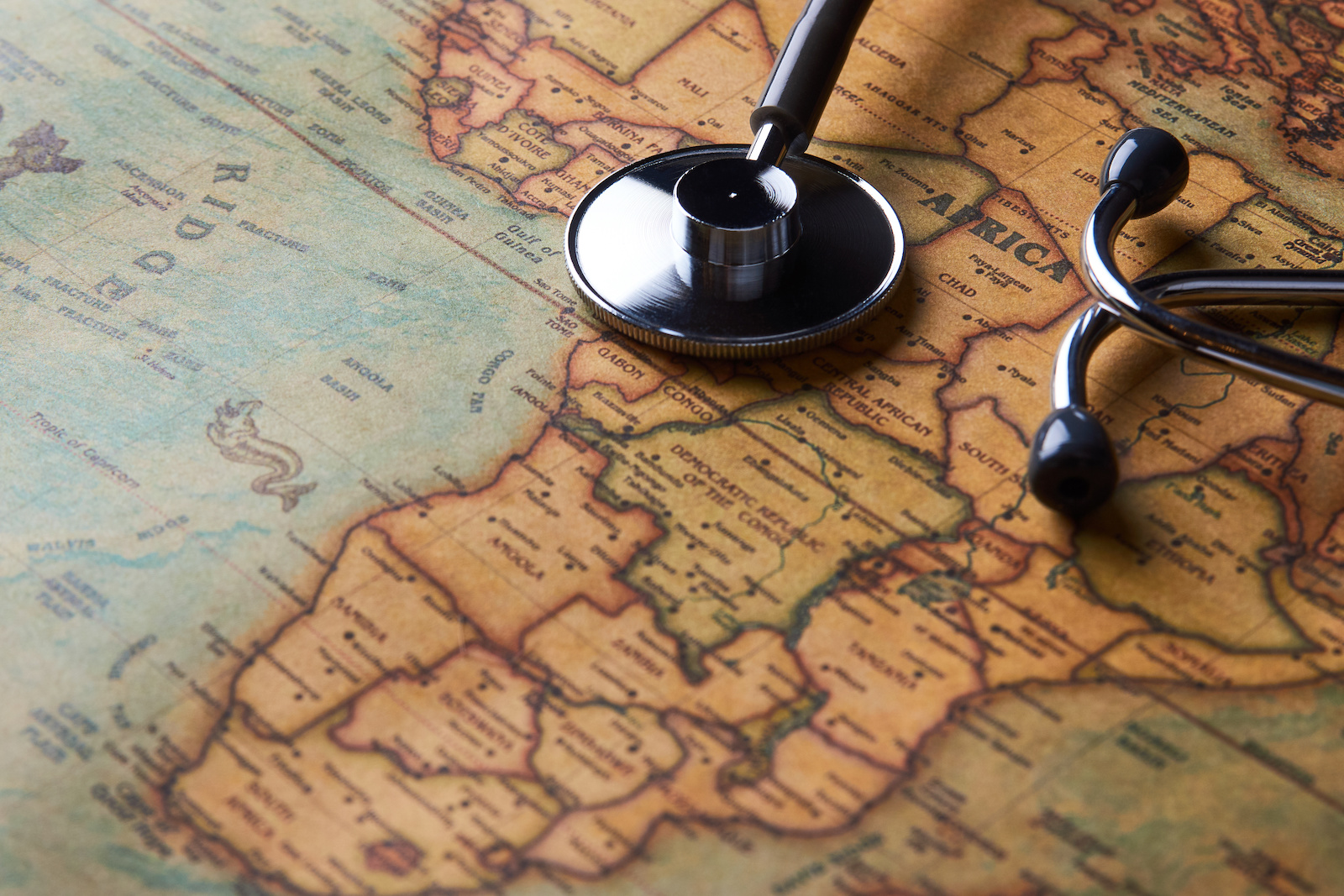News
Understanding and Building Resilience of Health Systems in Africa: COVID-19 and Beyond
Healthcare systems across the African continent are woefully understaffed and underfunded. Leaders need to start putting people before personal or political interests.

Associate Researcher, The Brenthurst Foundation

Deputy Research Director, The Brenthurst Foundation

The global health security index (GHS) indicates that only twenty-one out of fifty-four African countries are capable, to some extent, of handling pandemic outbreaks of global proportions such as COVID-19. The remaining 33 countries were found to have health systems that were totally incapable of handling a pandemic.This is alarming, but also a chance to do better. Building resilience in health systems is imperative for future sustainability.
The GHS evaluates the capability and efficacy of countries to prevent, detect, report, and rapidly respond to health crises. The GHS framework scores countries on a scale of 0 — 100, with 100 representing the most favourable conditions. Scores between 0 — 33.3 are interpreted as low, from 33.4 to 66.7 as moderate and above 66.7 as high. The five highest ranked countries in Africa in the 2019 GHS index were, South Africa (54.8), Kenya (47.1), Uganda (44.3), Morocco (43.7), and Ethiopia (40.6) — none of which made the top 30 of the 195 countries ranked. South Africa is ranked 34th and the continent's next best picks up from 55th and upwards. Still, although these are the highest ranked African countries in the GHS, their health systems still have very strong challenges.
All five countries rank from low to moderate in the prevention sub-category, indicating weak resilience of health systems towards prevention of pandemics. Apart from Ethiopia, the others rank from moderate to high in their ability to detect and report pandemic outbreaks in real time. According to the GHS index, this is because Ethiopia does not have systems for real time surveillance and reporting, including the absence of mechanisms that integrate data between humans, animals, and the environment.
South Africa's superiority depicts the quality of its health investments and capabilities. With access to modern laboratory systems, real time surveillance and reporting, and the integration of data between humans, animals and the environment, South Africa's health systems have the capacity to test and approve new medical countermeasures; good levels of capacity in clinics; hospitals and community health centres and moderate access to health service delivery. It also has a useful level of capacity in epidemiology compared to its counterparts. South Africa's strongest flaw, according to the GHS, is its inability to prevent outbreaks in the first place. This perhaps explains why South Africa is the worst COVID-19 infected African country.
Prior to COVID-19, healthcare was underdelivering on the continent. In a recent Afrobarometersurvey of African countries (prior to the pandemic), over 50% of Africans surveyed said they went without needed healthcare at least once during the previous year. 46% felt their governments were performing 'fairly badly' or 'very badly' in providing basic health services. In South Africa for instance, less than half the population (47%) surveyed in 2018 said they had access to a clinic. This, and other factors, are perhaps why countries like South Africa, despite their advancement, experienced tremendous loss of life because of the pandemic. South Africa, by far, records the highest number of COVID-19 deaths in Africa followed by Egypt and Morocco.
There is no gainsaying that there are other mitigating factors, besides the sophistication of health systems or economic superiority. Although the pandemic's effect in Africa is relatively mellow the continent's ability to fight the pandemic is severely constrained by a wide range of factors. These include financial constraints, poor health sector capacity, poor service delivery and testing capabilities and poor leadership, among others.
Inadequate financial resources
Africa accounts for less than 3% of global financial resources. Consequently, most African countries have had to borrow to mitigate the adverse socioeconomic impact of the pandemic. Prior to the inception of COVID-19, African governments were already fiscally constrained with an average debt to GDP ratio of 59% in 2018. COVID-19 has seen many African countries exceed the 60% debt-to-GDP threshold recommended by the African Monetary Cooperation Program for developing countries. The rising debt level is expected to further deteriorate considering the low growth projections for African economies, dwindling tax revenues due to rising unemployment and business shutdowns, and unfavourable external economic outcomes emanating from trade disruptions.
Insufficient health personnel and equipment
The continent has a meagre 3% of the world's healthcare labour force, and less than 3 physicians per 1,000 people in most African countries. At the start of the pandemic, Africa had the lowest number of doctors per capita in the world, with the likes of Uganda limited to just 1 doctor per 10,000 people. Sudan, with a population of 42 million, reportedly has just 80 ventilators. Nigeria's 200 million have fewer than 500 ventilators. Liberia has none. Kenya, on the other hand, has just 500 high-care beds in a country of over 50 million, while Uganda has just 55, of which 80% are in Kampala, the capital. Algeria and Tunisia ranked in the top five African countries with the most available physicians per 1,000 people and yet, they both experienced some of the highest deaths from COVID-19 on the continent. This depicts an acute shortage of critical health personnel and equipment in African countries.
Poor service delivery

Service delivery in most African countries, especially water, waste and sanitation are grossly challenged. Telecommunication, transport infrastructure and sustainable energy in Africa are all below other developing regions such as Latin America and the Caribbean, East Asia and the Pacific. And yet, each of these services play a key role in the resilience of health systems, country-level preparedness and the ability to mitigate the adverse impact of pandemics.
Inadequate testing capabilities
Poor physical and health infrastructure in most African countries have led to inability to test for COVID-19 infections. As of October 2020, only 24 out of 55 African countries had been able to test at least 1% of their populations, with Mauritius leading at 19.37% of the population tested. Countries with smaller population sizes seem to have achieved higher levels of testing than others with larger populations. However, in absolute terms, South Africa has conducted the highest number of tests for COVID-19 in Africa.
Poor leadership
The ongoing COVID-19 pandemic has shed light on the crucial role leadership plays in crisis management. The more developed countries like the U.S and U.K have shown that the greatest threat is posed by the actions, or inactions, of leaders to make the right choices. Countries like New Zealand and South Korea have been cited as stellar examples of preparedness and responsiveness largely due to their decisive and coordinated leadership with national responses. Adequate and up-to-date infrastructure and the capability of relevant professionals' help, but the proof is in the ability of leadership to rally and deploy these resources.
Good leadership is not just a fashionable mantra, it is a prerequisite for developing robust and resilient systems, especially in health, under the circumstances. African leaders need to invest in the priorities that will allow them to build the hardware and software necessary for creating robust and resilient health systems that can deliver under emergencies, and the requisite human capital to manage them. This will require putting the country first, not personal, or political interests.

